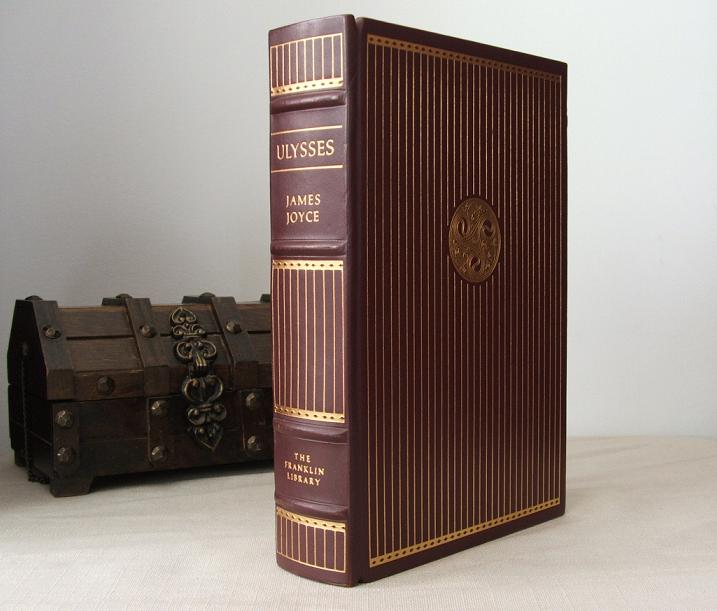Easton Press James Joyce books
A Portrait of the Artist as a Young Man - 100 Greatest Books Ever Written - 1977Ulysses
Dubliners - 1996
Short Stories of James Joyce - 1996
Franklin Library James Joyce books
Ulysses - 100 Greatest Books of All Time - 1976
Ulysses - Greatest Books of the Twentieth Century - 1978
Dubliners - Collected Stories of the World's Greatest Writers - 1979
Dubliners - 20th Century's Greatest Books - 1979
Dubliners - 1996
Short Stories of James Joyce - 1996
Franklin Library James Joyce books
Ulysses - 100 Greatest Books of All Time - 1976Ulysses - Greatest Books of the Twentieth Century - 1978
Dubliners - Collected Stories of the World's Greatest Writers - 1979
Dubliners - 20th Century's Greatest Books - 1979
Ulysses - Oxford Library of The World's Greatest Books - 1983
Writer James Joyce
James Joyce (1882–1941) was an Irish modernist writer renowned for his groundbreaking works in the realm of literature, particularly for his contributions to the development of the modern novel. Born on February 2, 1882, in Dublin, Ireland, Joyce's literary legacy is marked by his experimentation with narrative techniques, complex structures, and his profound exploration of the human psyche. Joyce was educated at the Jesuit schools Clongowes Wood College and Belvedere College before attending University College Dublin. In 1904, he left Ireland with his partner, Nora Barnacle, and they settled in various European cities, including Trieste, Zurich, and Paris. These cosmopolitan experiences influenced Joyce's writing, providing him with a rich tapestry of cultural and linguistic references.His first major work, Dubliners (1914), is a collection of short stories that offers a vivid portrayal of life in Dublin. The stories explore the complexities of human relationships, morality, and the impact of Irish society on individuals. The publication of Dubliners marked the beginning of Joyce's literary career. Joyce's masterpiece, A Portrait of the Artist as a Young Man (1916), is a semi-autobiographical novel that delves into the intellectual and emotional development of its protagonist, Stephen Dedalus. The novel showcases Joyce's use of innovative narrative techniques and stream-of-consciousness writing.
However, it was with Ulysses (1922) that Joyce achieved international acclaim and solidified his reputation as a literary innovator. Ulysses is a modernist novel that reimagines Homer's Odyssey in the context of a single day in Dublin—June 16, 1904. The novel is celebrated for its intricate structure, linguistic complexity, and exploration of various literary styles. Joyce's final major work, Finnegans Wake (1939), is a dense and multilayered text that pushes the boundaries of language and narrative even further. Written in a dreamlike, stream-of-consciousness style, the novel is known for its linguistic innovations and challenging narrative structure.
James Joyce's impact on modern literature is immeasurable. His works, while often complex and challenging, have influenced generations of writers and scholars. Despite facing censorship and controversy during his lifetime, Joyce's legacy endures, and his innovative approach to literature continues to be studied and celebrated worldwide. Joyce passed away on January 13, 1941, in Zurich, Switzerland.

Comments
Post a Comment
Share your best book review and recommendation